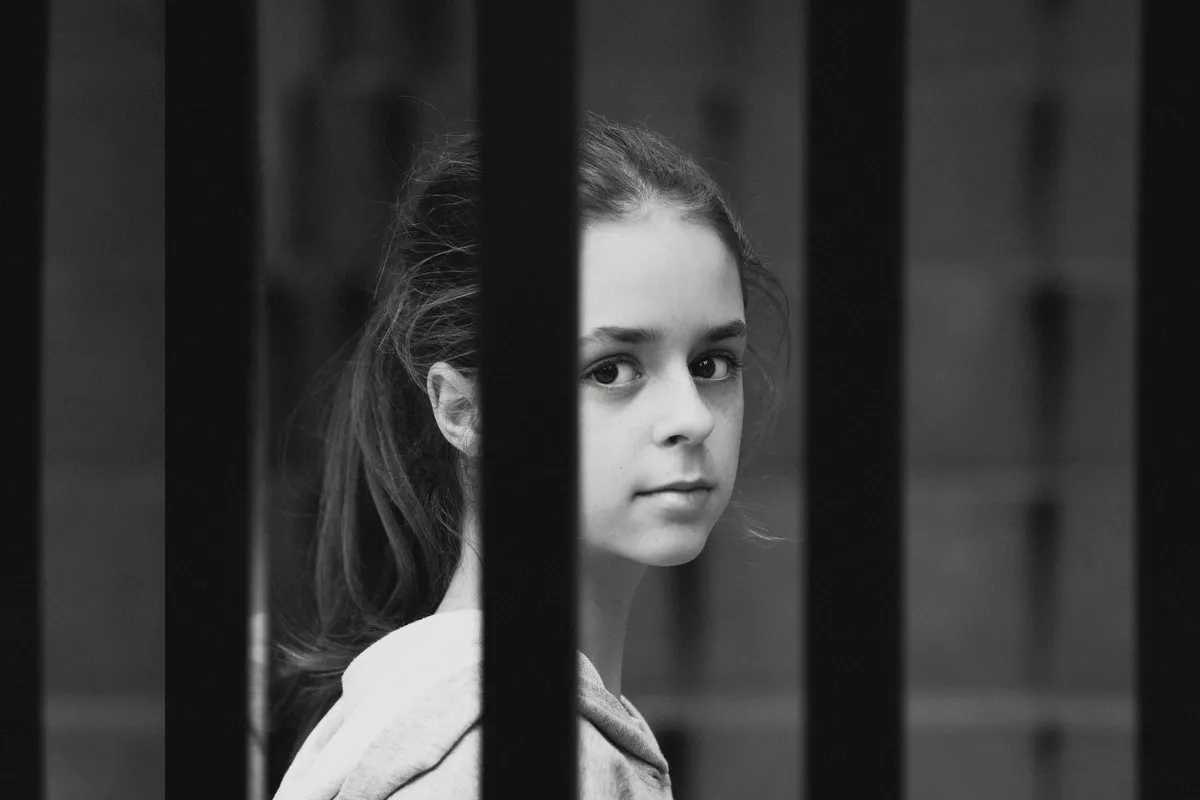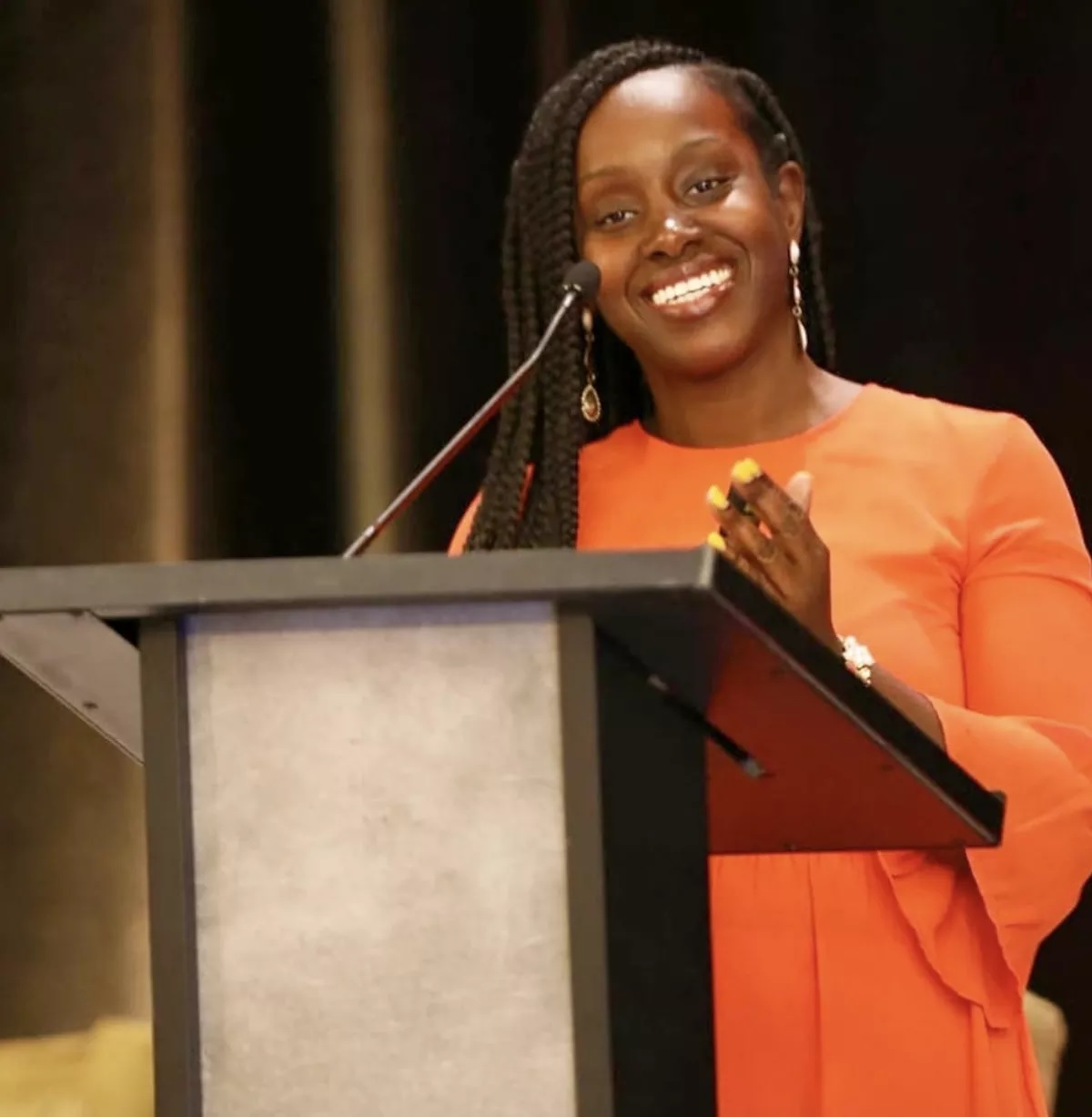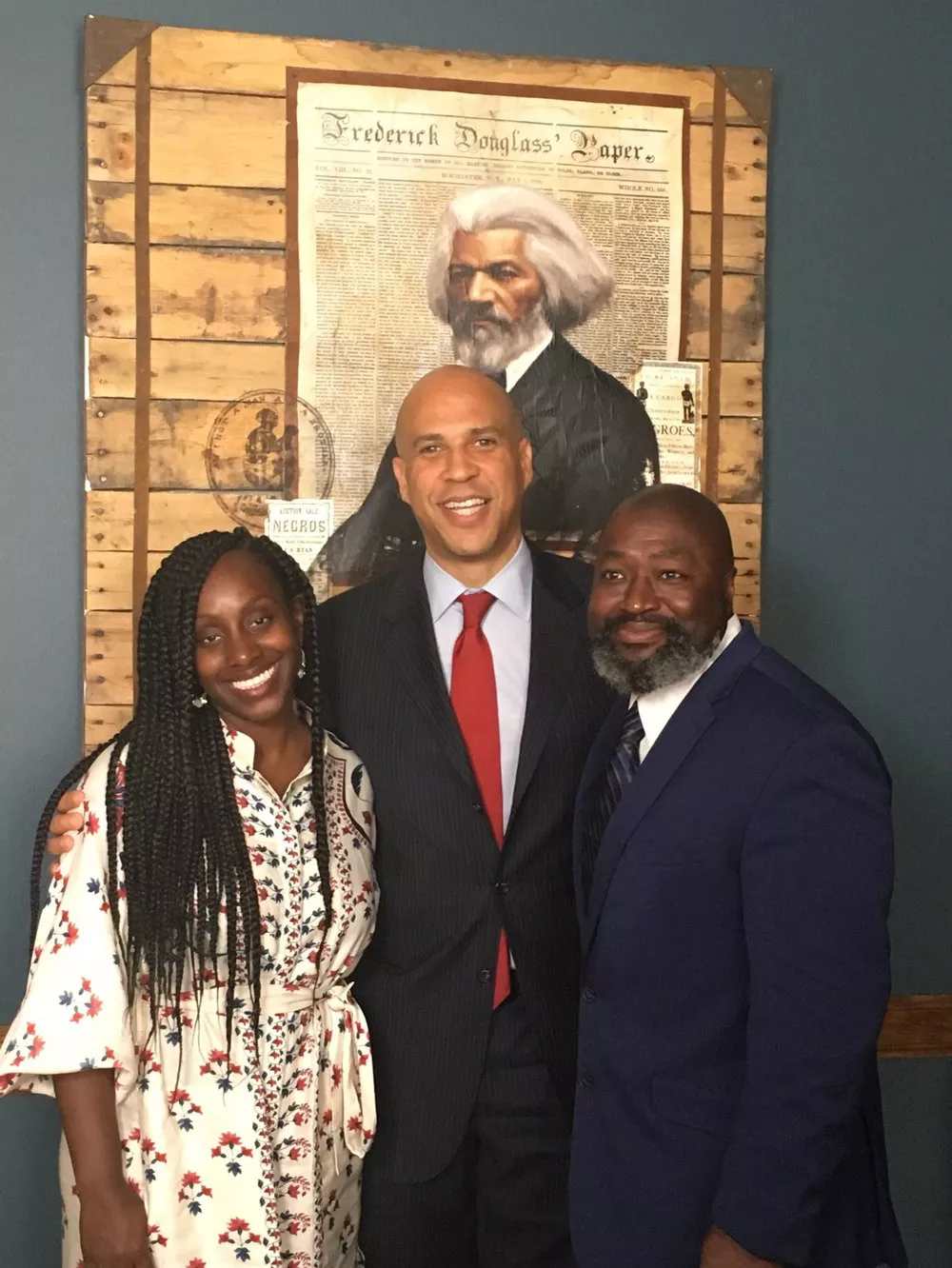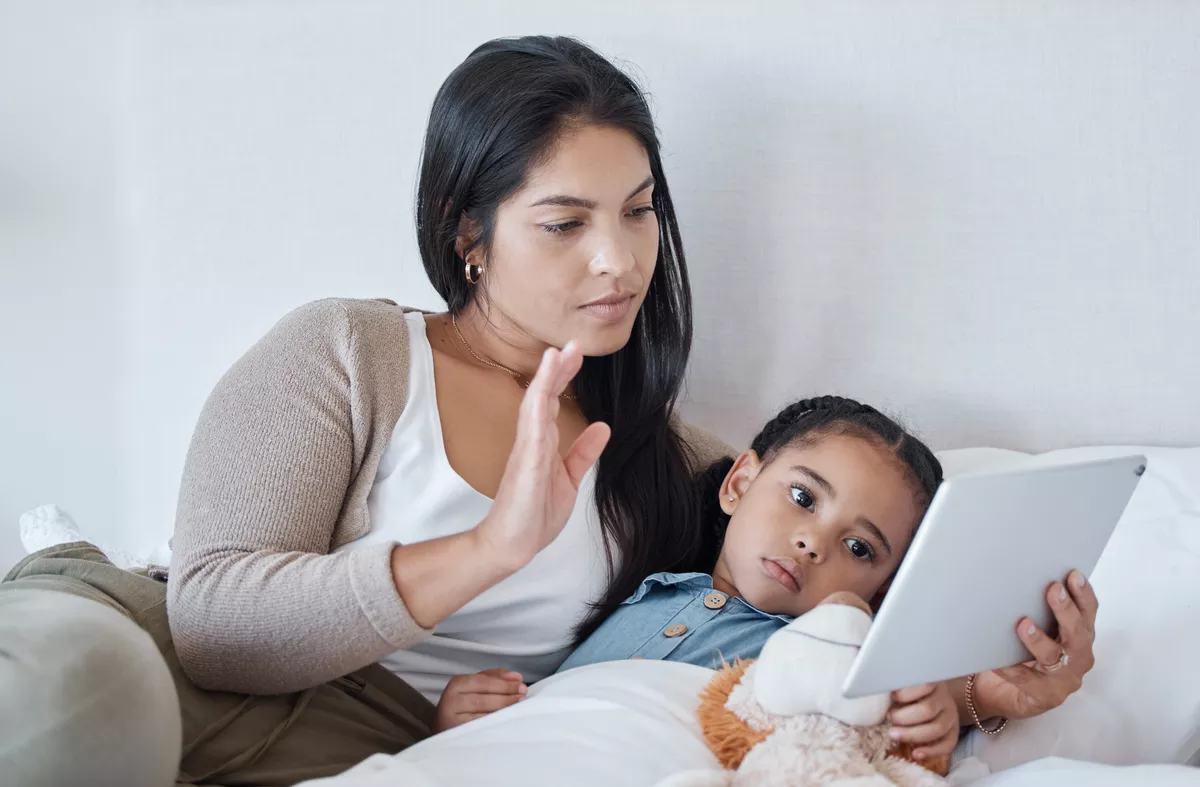👋 Welcome to Starting Early. Every other week, we spotlight new reports, useful news, engaging interviews with people doing important work, and interesting takes on maternal health and early childhood development issues.
More than half of the nearly 2 million people incarcerated in the US are parents. With rising incarceration rates, more and more children must cope with the abrupt separation from and long-term absence of their parents.
Among advocates working to mitigate the impacts of parental incarceration is the guest editor for this issue of Starting Early, Ebony Underwood, founder and CEO of WE GOT US NOW. The daughter of a formerly incarcerated parent, Ebony brings her experience to challenge the inequities of the carceral system and help others share their stories. ❤️
Read on and click the links to go deeper.
1 big thing: Parental incarceration harms child wellbeing

Nearly 3 million children under 18 have a parent in the carceral system; over 10 million children have had a parent incarcerated at some point in their lives.
- If having an incarcerated parent was classified as a chronic health condition, it would be the second most prevalent chronic condition in the United States for children– just behind asthma.
- There is a disparate impact on families of color, with African-American children 9 times more likely and Hispanic children 3 times more likely than white children to have a parent in prison.
Why it matters: Parental incarceration harms the physical, emotional, and financial wellbeing of children and their families. Children of incarcerated parents are exposed to 5 times more adverse childhood experiences – stressful or traumatic events occurring before age 18. They also experience:
- Increased emotional, social and, economic consequences, including Post-Traumatic Stress Disorder, nightmares, hopelessness, depression, and anxiety.
- Reduced access to primary, dental, and behavioral healthcare, which can contribute to developmental delays.
But children of incarcerated parents aren’t just a statistic. There is no solid evidence to support the widespread assertion that children whose parents are imprisoned are several times more likely than other children to be incarcerated when they become adults.
2. Dispatches from the field: Learning about incarceration through the perspective of children

We spoke with Ebony Underwood, Aspen Institute Ascend Fellow and founder/CEO of WE GOT US NOW, a national advocacy nonprofit built by, led by, and about children and young adults affected by parental incarceration. Ebony’s father, William “Bill” Underwood, was incarcerated when she was a minor and remained in federal prison for 33 years.
Guided by her struggles with parental incarceration, Ebony founded the organization to elevate the challenges children of incarcerated parents face and advocate for an equitable carceral system. Here are highlights from our conversation:
What kind of work does WE GOT US NOW do and what are its goals?
We are an advocacy-based organization that works on public education, civic engagement, developing directly-impacted leaders, and policy reform at the local, state, and federal levels. It was really important to be a national organization because this is not a monolithic issue, and we didn’t want to leave out any segment of the population. We believe it’s important to amplify how mass incarceration creates collateral consequences that affect children’s daily lives. The goal is to seek justice and accountability for our marginalized population.
Since 2021, WE GOT US NOW has been instrumental in passing 5 pieces of legislation at the local, state, and federal levels.

What can be done to reduce stigma that children of incarcerated parents feel?
It begins by understanding the problem. The work of WE GOT US NOW leads with education. Half of the 2.2 million people incarcerated in the US are parents. More than 2.7 million children under the age of 18 have an incarcerated parent. That alone is a huge population. But the epidemic is that over 10 million children, at some point in their life, have experienced a parent incarcerated. To me, that means an entire segment of our population is walking around with invisible wounds from the trauma, stigma, and shame of parental incarceration. We can no longer sweep things under the rug. This has to change. We must heal as a nation.
There isn’t an instruction manual when someone goes to prison. Most people, including family members, have no idea what children with incarcerated parents are going through. WE GOT US NOW’s approach is from the perspective of the child.
What led you to start this organization?
My dad fought his conviction the entire time he was incarcerated. I felt if there’s one thing I could do to support him here on the outside, it would be to say something about the injustices in society’s approach to incarceration and the experiences families with incarcerated loved ones have.
I also wanted people to know that my father never stopped being a father, despite prison walls, no matter where he was. He’d been in 8 federal correctional facilities across the United States, but he was always present in our lives: Through phone calls, birthday cards, holiday cards, and eventually email, he was there.
Read the full interview here.
3. Supporting families of incarcerated parents

Families face significant challenges during and after a parent’s incarceration. States, local governments, and nonprofit organizations are addressing such challenges as:
👨👩👦Difficulty staying in touch: More than two-thirds of incarcerated parents are more than 100 miles from home, making regular visits difficult. And many institutions ban in-person visits in favor of paid video visits. While this can help families too far away to visit, video visits often are cost-prohibitive and reliant on inconsistent technology. Efforts to increase access to family contact can contribute to reduced recidivism rates and better mental health for incarcerated parents and their families.
- Solution: Keep parents close to home — New York’s Proximity Bill requires the state Department of Corrections and Community Supervision to place incarcerated parents in the facility closest to their minor children.
- Solution: Promote parent-child bonds — The Place 4 Grace sends books to incarcerated parents and their children, along with audio recordings, so children can hear the voice of their loved one and read along. Through Family Connections, parents incarcerated at Rikers Island can spend 2 hours a month with their children at the Children’s Museum of Manhattan.
💲Lack of financial security: Nearly half of parents in prison were the main source of financial support for their children before incarceration. Incarcerated parents earn little to no wages — the average minimum hourly wage is 13 cents and, in 7 states, incarcerated people are unpaid. After returning home, formerly incarcerated people earn less on average than other people and are more likely to be unemployed.
- Solution: Living wage — Some states pay incarcerated people more, but these efforts rarely go far enough. In Colorado, the first state to mandate that incarcerated people be paid a minimum wage, wages are at least $12.56 per hour. But, only a small portion of Colorado’s incarcerated population is covered. Pennsylvania increased its incarcerated wage minimum by 20% — which amounts to only 23 cents an hour instead of 19 cents.
- Solution: Education — The Petey Greene Program offers pre-collegiate educational opportunities to incarcerated and formerly-incarcerated people. Participants obtain a high school diploma or other credential — preparing them for employment or postsecondary education. The program has tutored about 16,000 students in over 50 correctional facilities and reentry programs.
Lack of maternal healthcare: Though about 58,000 women a year are pregnant at the time of incarceration, prisons don’t have mandatory standards for prenatal care. Only 8 states operate prison nurseries where mothers and infants can stay together after birth.
- Solution: Doula services — The Minnesota Prison Doula Project offers doula services, group education and support, and individual peer counseling to help prevent traumatic birthing and parenting experiences.
4. One smile to go: Elevating youth voices 😀

Parental incarceration is especially traumatic for young children. WE GOT US NOW empowers its Jr. Actionists to share their experiences and advocate for incarcerated people.
In the sixth episode of the WE GOT US NOW podcast, Amira, Camaya, and Ka’Miya – 11-year-old Jr. Actionists – discuss the challenges of having a parent in the carceral system. Amira and her grandparents drive 7 hours every other month to see her father. When visiting their parents, all 3 girls are subject to security screening, including passing through metal detectors and being wiped down and tested for illicit drugs. One Jr. Actionist recounted her disbelief when her 4-month-old cousin was screened for drugs.
Lyric, another Jr. Actionist, shared her story in Apart, Emmy-winning episode of the docuseries, Through Our Eyes. She says:
5. The roundup
Learn about upcoming events, new funding opportunities, and jobs in maternal and infant health and early childhood:
- Support: Purchase a signature t-shirt or hoodie from WE GOT US NOW’s shop. The proceeds fund the organization’s important work. 💞
- Save the date: The Annual Children of Incarcerated Parents National Conference will be held virtually April 17, April 24, and May 1. Register here to attend.
- Join our team: The Burke Foundation seeks a program associate to support our maternal and child health initiatives. Click here for the job description and information on how to apply.
- From data to action: Advocates for Children of New Jersey is hosting community conversations to review Trenton Kids Count 2023 data and brainstorm ways to serve the needs of Trenton children. The next conversation, March 15, will focus on health and human services. Click here to view the report and register to attend a community conversation.
- Promote child wellbeing in New Jersey: The New Jersey Chapter, American Academy of Pediatrics seeks candidates for several positions focused on Early Relational Health, maternal health, and more.
